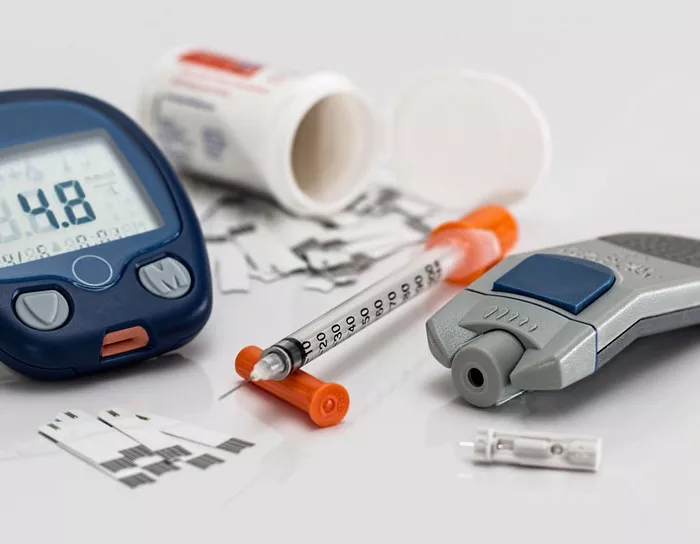Type 1 diabetes is a chronic condition that requires lifelong management to maintain blood sugar levels within a healthy range. One of the cornerstone treatments for type 1 diabetes is insulin therapy. Insulin is a hormone that helps regulate blood sugar levels by facilitating the uptake of glucose into cells for energy production. With several types of insulin available on the market, choosing the most suitable one can be a complex decision influenced by various factors. In this article, we explore the different types of insulin and discuss considerations for selecting the best insulin regimen for individuals with type 1 diabetes.
Understanding Insulin Therapy
Insulin therapy aims to mimic the natural release of insulin in the body to regulate blood sugar levels effectively. There are several types of insulin, categorized based on their onset, peak, and duration of action. These categories include rapid-acting insulin, short-acting insulin, intermediate-acting insulin, and long-acting insulin. Additionally, there are premixed insulin formulations that combine different types of insulin to provide both basal and prandial (mealtime) coverage.
Factors Influencing Insulin Choice
Several factors influence the selection of insulin therapy for individuals with type 1 diabetes, including lifestyle, treatment goals, insulin sensitivity, and personal preferences. Additionally, considerations such as cost, insurance coverage, convenience, and the risk of hypoglycemia play a crucial role in determining the most appropriate insulin regimen.
Types of Insulin
1. Rapid-Acting Insulin: Rapid-acting insulin analogs, such as insulin lispro, insulin aspart, and insulin glulisine, have an onset of action within 15 minutes, peak between 30 minutes to 3 hours, and last for about 3 to 5 hours. These insulins are commonly used to cover mealtime glucose spikes and can be administered shortly before or immediately after meals.
2. Short-Acting Insulin: Regular human insulin is considered short-acting insulin, with an onset of action within 30 minutes, peak between 2 to 4 hours, and duration of action lasting up to 8 hours. While less commonly prescribed compared to rapid-acting analogs, short-acting insulin may be suitable for individuals who prefer a more traditional insulin regimen.
3. Intermediate-Acting Insulin: Intermediate-acting insulin, such as NPH (neutral protamine Hagedorn) insulin, has an onset of action within 1 to 2 hours, peak between 4 to 12 hours, and duration of action lasting up to 18 hours. NPH insulin provides basal coverage and is often combined with rapid-acting insulin for a comprehensive insulin regimen.
4. Long-Acting Insulin: Long-acting insulin analogs, including insulin glargine and insulin detemir, have a more consistent and prolonged effect compared to intermediate-acting insulins. These insulins have a peakless profile and provide basal insulin coverage for up to 24 hours, offering greater flexibility in dosing schedules.
5. Premixed Insulin: Premixed insulin formulations combine intermediate-acting and rapid-acting insulins in fixed ratios to provide both basal and prandial coverage. These formulations simplify dosing for individuals who require a combination of insulin types throughout the day.
Choosing the Best Insulin Regimen
Selecting the best insulin regimen for type 1 diabetes management requires a personalized approach that takes into account various factors, including:
1. Blood Glucose Control: The primary goal of insulin therapy is to maintain blood sugar levels within a target range to prevent complications associated with hyperglycemia and hypoglycemia. A regimen that achieves optimal glycemic control while minimizing the risk of hypoglycemia is essential for long-term health.
2. Mealtime Flexibility: Rapid-acting insulin analogs offer greater flexibility in dosing, allowing individuals to adjust insulin doses based on meal size, composition, and timing. This flexibility can help improve postprandial glucose control and enhance overall quality of life.
3. Basal Insulin Coverage: Long-acting insulin analogs provide consistent basal insulin coverage with minimal risk of hypoglycemia between meals and overnight. Choosing a long-acting insulin that aligns with an individual’s lifestyle and dosing preferences is crucial for achieving stable blood sugar levels throughout the day.
4. Injection Technique: The ease of administration and comfort of insulin injections can influence adherence to therapy. Insulin pens and disposable needles offer convenient and discreet administration options, particularly for individuals who require multiple daily injections.
5. Cost and Accessibility: The cost of insulin therapy can vary depending on the type of insulin, insurance coverage, and availability of generic alternatives. Access to affordable insulin is essential to ensure continuity of care and prevent treatment disparities among individuals with type 1 diabetes.
6. Individual Preferences: Patient preferences, including insulin regimen complexity, frequency of injections, and willingness to use advanced insulin delivery devices (e.g., insulin pumps), should be considered when selecting an insulin regimen. Shared decision-making between healthcare providers and patients can help tailor therapy to individual needs and preferences.
Conclusion
Choosing the best insulin regimen for type 1 diabetes management requires a comprehensive evaluation of various factors, including blood glucose control, mealtime flexibility, basal insulin coverage, injection technique, cost, accessibility, and individual preferences. By considering these factors and collaborating closely with healthcare providers, individuals with type 1 diabetes can develop personalized insulin regimens that optimize glycemic control, enhance quality of life, and minimize the risk of diabetes-related complications.

























